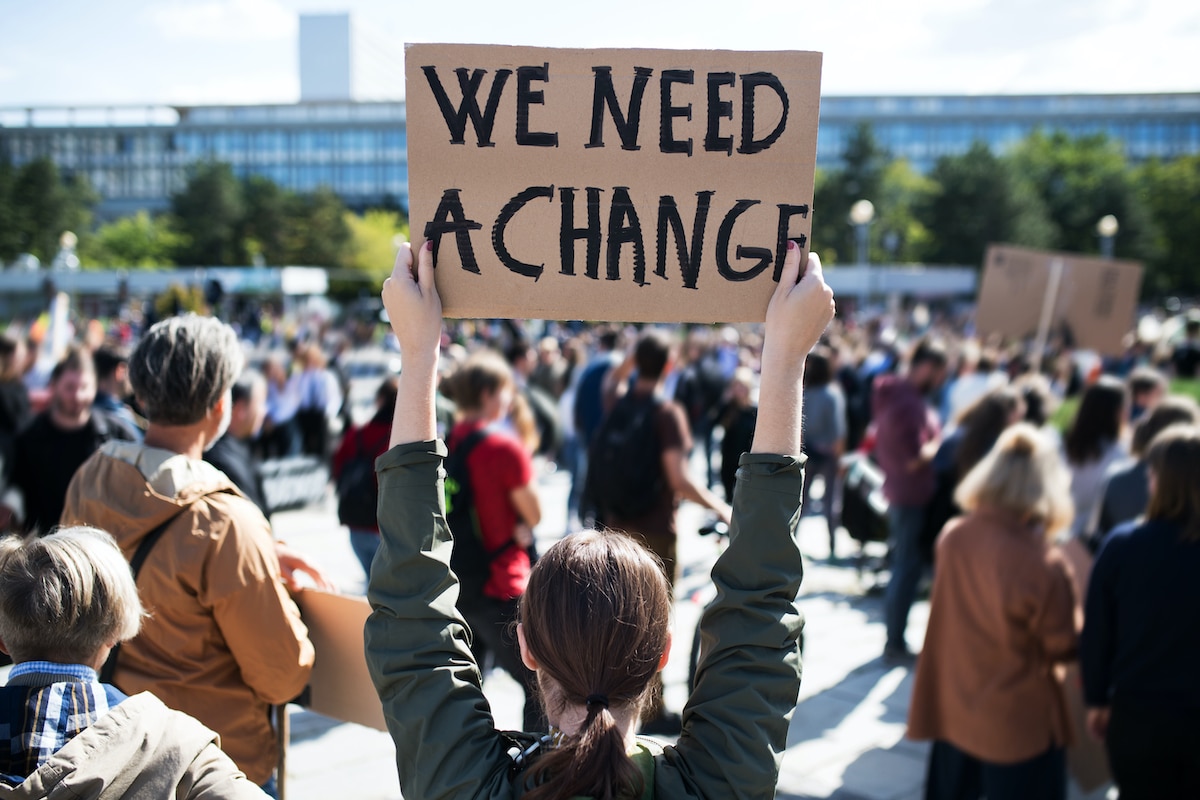UK based Unilever’s controversial shift away from its once-celebrated environmental and social pledges, spearheaded by CEO Hein Schumacher, underscores a troubling trend prioritizing shareholder profits over corporate ethics. Here’s the full story.
Greenwashing
Greenwashing is a corporate tactic in which a company, typically a large multinational corporation, announces a raft of eco-friendly initiatives it has no intention of ever delivering in order to get a few good headlines, some positive PR, and a stock price bump.
It has become extremely prevalent as the planet hurtles towards climate catastrophe, and globe-spanning companies, usually some of the world’s worst polluters, attempt to differentiate themselves from their competition as the world continues to heat up.
One such company that had previously made ethical proposals under its previous leadership, Unilever, the London-based company that makes everything from soap to ice cream, is now considerably scaling back its environmental and social objectives.
This move, spearheaded by its current CEO, Hein Schumacher, marks a notable departure from the company’s previously stated goals under the leadership of former CEO Paul Polman.
Revising Ethical Pledges
In a recent interview with Bloomberg, CEO Hein Schumacher unveiled Unilever’s intention to revise its ethical pledges amid shareholder panic that the company was spending too much on saving the planet and not enough on making them as much money as humanly possible.
One such ditched pledge was Unilever’s promise to halve its usage of virgin plastics by 2025. Instead, the company now aims for a more modest reduction of one-third by 2026, which means that every year, the company will generate 100,000 tons of plastic.
Unsurprisingly, the company is also abandoning its plan to pay its suppliers fairly after forgoing its commitment to ensure direct suppliers receive a living wage by 2030. Instead, it is implementing a plan to ensure fair compensation for suppliers responsible for half its annual expenditure on goods and services by 2026.
Additionally, Unilever is retracting its pledge to allocate €2 billion (£1.7 billion) annually to diverse businesses by 2025, with the commitment to have 5% of its workforce comprised of individuals with disabilities by the same year.
€94 Billion
On a related note, Unilever is valued at €94 billion on the London Stock Exchange and made €59.6 billion in revenue and €6.49 billion in profit in 2023.
To detract the shareholder profit motive that may have led the company to scale back its already insufficient environmental and ethical goals even further, CEO Schumacher attributes the strategic shift to “cyclical” factors.
He told Bloomberg, “When you have a huge drought for a number of months, but everything else is going fine, the attention is on climate. These days, it’s about wars, and rightly so, that’s at the forefront.”
He continued, apparently without irony, “I’m not going to shout that we’re saving the world but I want to make sure that in everything that we do, that it is indeed better.”
Playing While the Titanic Sinks
Despite objectively making things worse by scaling back the billion-euro company’s environmental and social objectives, Schumacher stressed that the company could still “make a difference” in key areas such as climate, plastics, nature, and people’s livelihoods.
Unilever’s decision to partially abandon its sustainability agenda was prompted by a period of stock market underperformance.
Since Schumacher assumed leadership in July 2023, Unilever’s shares have experienced an 8% decline, which has led to mounting pressure from shareholders to prioritise financial performance over ethical initiatives.
Depressing Reality
This depressing reality has been repeated by a number of large companies, which had previously stressed that they were all about saving the planet now before reversing their promises when they made slightly less money.
Unilever’s decision to streamline operations, including job cuts and divesting its ice-cream division, which makes Ben and Jerry’s ice cream, is planned to save the company €800 million.
As the company attempts to navigate this transitional period of making slightly less money, its previously hard-earned title as a responsible multinational billion-euro corporation, which had promised to invest €1 billion in green projects, lies in ruins.
The End?
The strategic decision by Unilever to cave to shareholder demands for increased profits is a depressing example of the future that is likely to take place as the planet continues to heat up, resources become more scarce, and companies are still driven by the need to make as much money as possible right up until the end.
Whilst many companies will claim their deeds are to protect the planet, ultimately, it seems they only care about the green in their wallets.
More Articles Like This…
Broken Britain: 12 Reasons Behind the UK’s Decline
Say the Unsayable: 10 Occasions When Farage Spoke His Mind About Britain
The post Greenwashing: Companies Scale Back on Environmental and Social Promises to Protect Profits first appeared on Edge Media.
Featured Image Credit: Shutterstock / Ground Picture.
Grant Gallacher is a seasoned writer with expertise in politics and impactful daily news. His work, deeply rooted in addressing issues that resonate with a wide audience, showcases an unwavering commitment to bringing forth the stories that matter. He is also known for satirical writing and stand up comedy.

